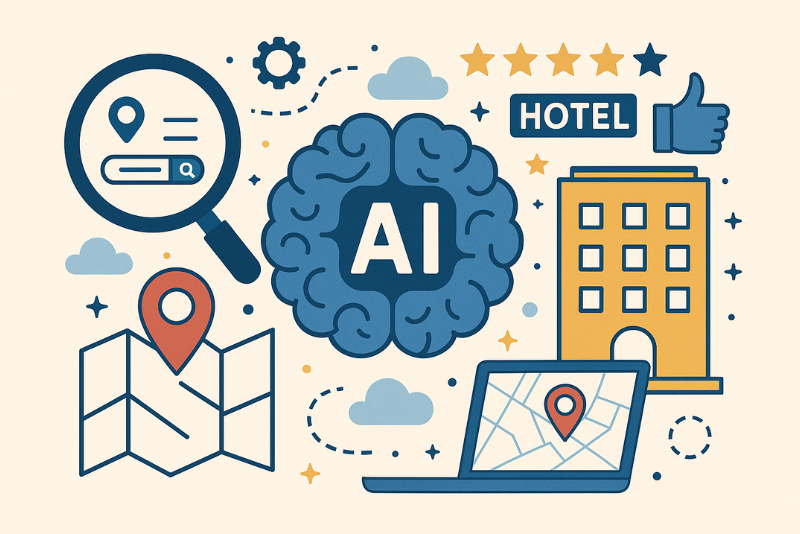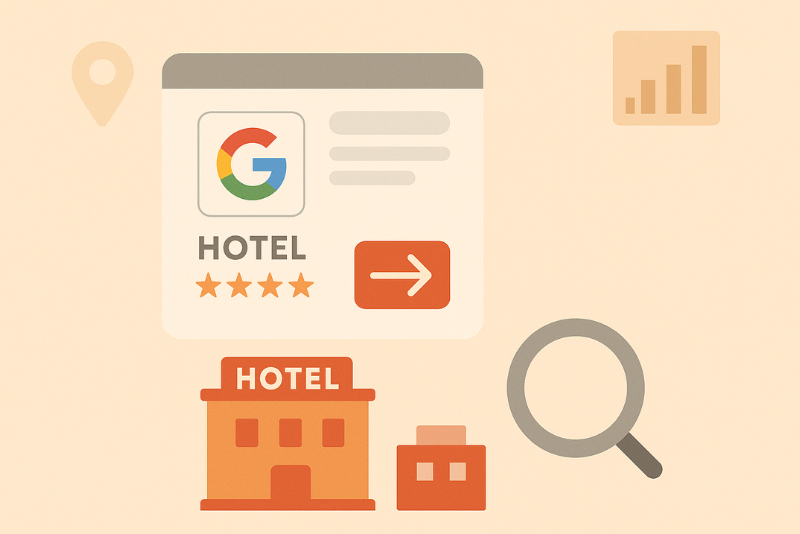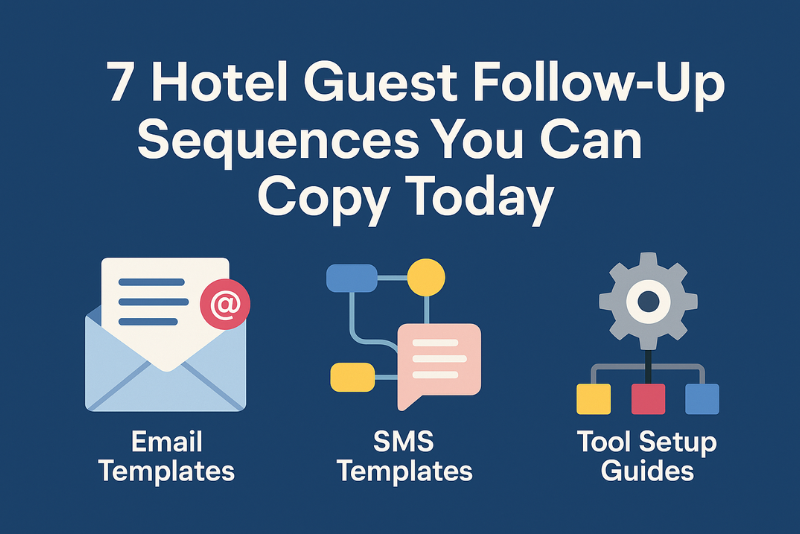Outsmart the Chains: AI Search Optimization for Hotels
Standing Out Without a Big-Brand Budget
Independent hotels face a unique challenge. You’re not just competing with the property across town. You’re competing with international hotel chains, OTAs (Online Travel Agencies), and AI-driven search engines that decide which listings surface first.
And artificial intelligence is rapidly transforming the hospitality industry, reshaping how hotels operate and how travelers search for accommodations online.
The good news? Smart AI search optimization for hotels can help level the playing field and give you a competitive edge over larger brands.
In this guide, we discuss five actionable strategies you can implement right now to boost visibility across Google, Bing, and AI tools.
These aren’t gimmicks — they’re sustainable tactics that work for real-world hotel marketers and help you reach future guests who are increasingly using AI-powered tools to find their next stay.
TL;DR: 5 Quick Wins for AI Search Optimization
- Claim and optimize your Google Business Profile
- Create location-specific landing pages with clear, helpful content and structured data to improve visibility in AI Overviews and AI search engines.
- List consistently on local directories and travel platforms.
- Drive and respond to reviews that influence AI summaries.
- Publish local content that AI tools surface for travel queries.
5 AI Search Optimization for Hotels
Here are five AI Search Optimizations for hotels you can implement today.
1. Optimize Your Google Business Profile (GBP) Like a Pro

Your Google Business Profile fuels Google Maps, local packs, and AI answers to queries like “best hotels near me.” Help your hotel stand out in AI-powered search results.
Here’s what to do:
- Claim and verify your listing (if you haven’t already)
- Keep your Name, Address, Phone (NAP) consistent across all listings.
- Add high-quality photos of the rooms, amenities, lobby, and local attractions.
- Use the description and Q&A sections with natural language.
- Post regularly: updates, local events, seasonal promos
- Respond to every review — it signals engagement and trust.
Backed by Data:
- Listings with photos get 42% more direction requests and 35% more website clicks.
- Businesses with over 100 images on their GBP get 2,717% more direction requests and 1,065% more website clicks than the average listing.
Quick Win: Schedule a 30-minute GBP audit each quarter. Update photos and refresh posts regularly.
2. Build Location-Specific Landing Pages That Convert
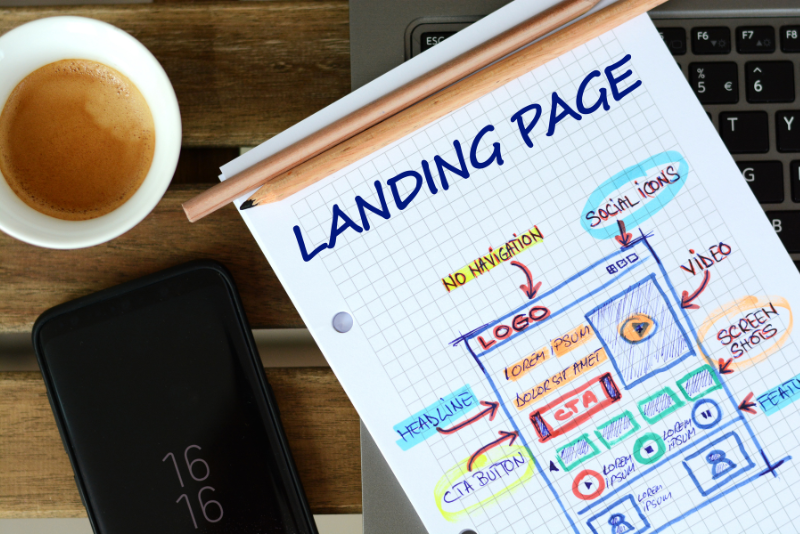
Traditional search engines (and AI tools) love specificity. A generic homepage won’t cut it when a traveler searches for “boutique hotel near [Landmark] with free parking.”
Create landing pages that:
- Focus on specific neighborhoods, attractions, or themes.
- Include natural long-tail keywords: “pet-friendly hotel in [City]”
- Embed Google Maps and add internal links to other helpful pages.
- Feature FAQs that mirror real user queries (great for AI summaries)
- Highlight your hotel’s unique value, such as proximity, local experience, or complimentary breakfast.
- Optimize website content and web pages with structured data and schema markup to help AI search engines and AI Overviews better understand and display your hotel information.
Quick Win: Add a “Things to Do Near Us” page with curated staff picks. Use bullet points and clear headers for AI readability.
3. Get Listed — And Stay Listed — in Local Directories

Search engines use directory listings to validate your legitimacy. AI tools pull from these sources to generate answers.
Action steps:
- Submit to top platforms: TripAdvisor, Yelp, Booking.com, Expedia.
- Don’t skip niche sites: regional tourism boards, event listings, and local blogs.
- Use services like Moz Local or BrightLocal to monitor NAP accuracy.
- Watch out for duplicates or outdated listings that confuse algorithms.
- Keep all listings up to date and ensure relevant information is accurate across all platforms, including social media platforms.
Backed by Data:
- Local citations are a top foundational factor for local pack visibility, even if they don’t directly boost rankings.
- Inconsistent listings can confuse AI summarization models and reduce trust.
Quick Win: Google your hotel name + city. Spot and fix any incorrect listings today.
4. Earn (and Showcase) Quality Reviews Strategically
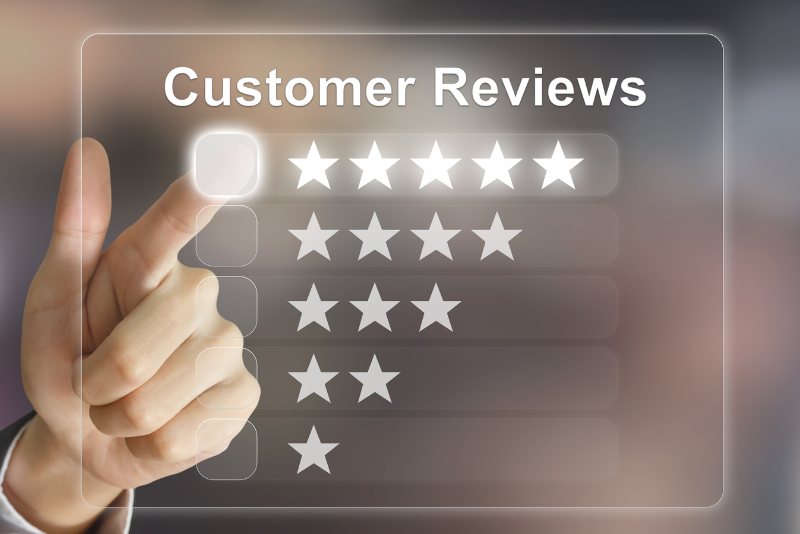
Guest reviews aren’t just social proof. They feed the algorithms that power search and AI rankings.
To do this well:
- Prioritize Google, TripAdvisor, and Booking.com for reviews
- Train front desk staff to request reviews after positive experiences
- Include links or QR codes in follow-up emails and physical signage
- Highlight top reviews on your website (with guest permission)
- Always respond—especially to negative reviews—with professionalism
- Automate your review request process with a CRM like Hotel Growth Engine.
Backed by Data:
- A one-star increase in Yelp rating can drive a 5–7% revenue increase.
- Reviews are a known ranking factor in local SEO and are heavily weighted in AI-powered search results.
Quick Win: Add a framed sign at check-out with a simple QR code: “Loved your stay? Share it with others.”
➡️ Want reviews that drive real revenue? Check out
Automate, amplify, and convert your best guest feedback into revenue.
5. Create Locally Relevant Content That Attracts and Converts
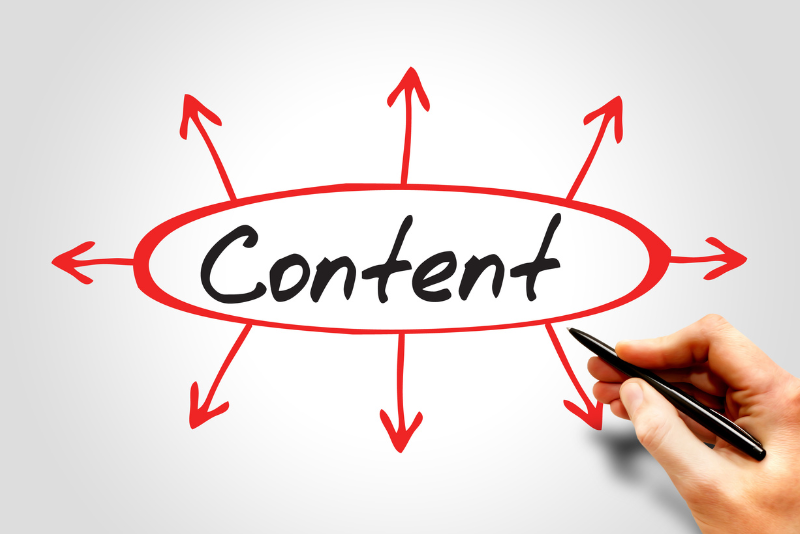
AI tools love surfacing helpful, local content. Your blog could be their next source.
Content ideas that work:
- “3-Day Weekend Itinerary in [City Name]”
- “Top 5 Restaurants Within Walking Distance of [Hotel Name]”
- Seasonal guides: fall foliage, summer festivals, winter skiing nearby
- Local business spotlights or interviews (bonus: backlink opportunities)
Make sure:
- Content is mobile-friendly and easy to scan
- You use clear subheadings, bullet lists, and short paragraphs
- Keywords appear naturally — don’t stuff
- Website content is kept up to date and provides relevant information for both users and AI search engines
Quick Win: Turn your staff’s favorite restaurant list into a blog post or an Instagram carousel.
Bonus Tip: Don’t Ignore Technical SEO for Hotel Websites
- Ensure fast load times and mobile responsiveness, as these technical SEO improvements help machine learning algorithms, AI models, and AI systems accurately interpret and index your hotel website.
- Use HTTPS and compressed images.
- Avoid JavaScript-heavy layouts that block crawlers.
Optimizing technical SEO improves AI’s ability to analyze and rank your site, making it easier for AI-powered search to deliver relevant results and personalized experiences.
If your site’s slow or clunky, both Google and AI tools will deprioritize your listing — limiting your AI-driven search potential.
Final Thought: Visibility Starts with Value
You don’t need a massive budget or a digital agency on retainer to start showing up in Google search and AI tools. What you need is consistency, clarity, and a willingness to think like your guest.
Pick one of these five strategies to implement this week. Keep it simple. Review results in a month. Then layer in the next one.
Because in the world of independent hospitality, visibility isn’t a luxury — it’s your lifeline.
Ready to See Where You Stand?
Take our Hotel Scorecard to assess your current setup in minutes.
FAQ
What’s the fastest AI search optimization win for hotels?
Update your Google Business Profile and start posting weekly.
Should I hire an agency or do this in-house?
Start in-house. These five steps are manageable without external help.
Do reviews really affect visibility?
Yes — Google and AI engines prioritize well-reviewed businesses. Guest reviews and experiences directly influence AI-driven search optimization for hotels. Positive feedback and high guest satisfaction can boost your visibility and create more direct bookings.
What kind of blog content works best?
Local guides, event previews, and insider tips with geographic keywords. Provide detailed answers to common guest queries and address guests’ preferences. Content that anticipates how users interact with AI search engines and focuses on guest personalization will perform best.

